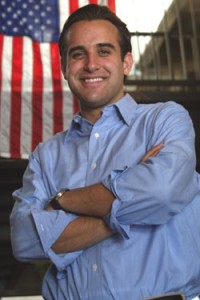By Artur Davis, on Tue Mar 20, 2012 at 8:30 AM ET  If you believe Reuters and Pew, Barack Obama is in a strong, improving position to win reelection, with a 50 percent approval rating and a double digit lead over his likely opponent, Mitt Romney. If you believe CBS/New York Times and ABC/Washington Post, Obama has lost ground and has fallen back to even with Romney. It’s an unusual divergence, and a reminder that an electorate that has swung so wildly in the last two cycles remains cryptic.
But putting aside the horse-race, something seems to have been drained out of this presidency. Since the start of 2012, it has been curiously devoid of an economic agenda, preoccupied with interest group politics, deliberately unwilling to assert much of a long term priority list. The administration has spent inordinate time on two causes, mandating Catholic institutions to cover birth control in their employee insurance plans—an issue few Americans had stressed over prior to this year—and challenging state voter ID laws, which 70 percent of the country support.
Read the rest of…
Artur Davis: Obama’s Very Quiet Year
By Jeff Smith, on Mon Mar 12, 2012 at 1:30 PM ET Best piece of the cycle by Nate Silver (@fivethirtyeight) on destiny of geography- recalls V.O. Key’s ’49 “friends+neighbors” theory:
In G.O.P. Nomination Race, Geography Has Been Destiny
By NATE SILVER
Rick Santorum’s victory in the Kansas caucuses on Saturday wasn’t much of a surprise, but his margin was toward the high end of expectations as he took 51 percent of the vote to Mitt Romney’s 21 percent. It was the largest margin of defeat for Mr. Romney in caucus or primary to date, although he lost the “beauty contest” primary in neighboring Missouri by almost as large a margin.
Mr. Santorum’s success in Kansas was also geographically sweeping. He took all four Congressional districts and all but one small county. Under Kansas’ delegate allocation rules, he should receive about 33 delegates to Mr. Romney’s 7 once the results are verified.
By John Y. Brown III, on Wed Mar 7, 2012 at 12:00 PM ET  A Facebook secret. A Facebook secret.
Facebook is a place where millions of people seemingly give advice to millions of other people daily but are really just using others as an excuse to give—and hopefully take—their own advice.
And I think that’s a very good thing.
The advice is communicated in status updates containing inspirational quotes, wise advice, clever slogans, and touching stories. Which seems lately to be on the rise.
We are telling ourselves that we need to adopt that particular thought or this mindset or take that action. It’s always easier to take advice ourselves if we can do so under the guise of giving that advice to others. It’s easier to hear, to accept, and ultimately to take. And FB gives us that always ready third-party, i.e. the FB world.
So, maybe, through all the status updates where we are seemingly nudging the world to become a little bit better place is actually working. By allowing us more often to nudge ourselves to each become a little bit better person.
And so maybe that isn’t so much a Facebook secret as much as it is the secret to Facebook.
By Jonathan Miller, on Fri Mar 2, 2012 at 12:30 PM ET James Fallows, my favorite national journalist, as well as a long time analyst of the presidency, offers some fascinating insight in his latest cover story for The Atlantic on what makes our President tick, and what this means for the future of his presidency:
Having seen a number of presidencies unfold, and some unravel, I am fully aware of how difficult it is to assess them in real time. What I feel I’ve learned about Obama is that he was unready for the presidency and temperamentally unsuited to it in many ways. Yet the conjunction of right-wing hostility to his programs and to his very presence in office, with left-wing disappointment in his economic record and despair about his apparent inability to fight Republicans on their own terms, led to an underappreciation of his skills and accomplishments—an underappreciation that is as pronounced as the overestimation in those heady early days. Unprepared, yes. Cool to the point of chilly, yes. For all his ability to inspire and motivate people en masse, for all his advertised emphasis on surrounding himself with a first-rate “team of rivals,” Obama appears to have been unsavvy in the FDR-like arts of getting the best from his immediate team and continuing to attract the best people to him.
Yet the test for presidents is not where they begin but how fast they learn and where they end up. Not even FDR was FDR at the start. The evidence is that Obama is learning, fast, to use the tools of office. Whether he is learning fast enough to have a chance to apply these skills in a second term—well, we’ll reconvene next year.
Click here to read the full piece from The Atlantic.
By Zac Byer, on Mon Feb 20, 2012 at 3:00 PM ET  Happy Presidents’ Day! I thought a good way to celebrate our forty-four presidents and fifty-six presidential elections would be to send a quick update to satisfy your political appetites.
Appetizer: So much of what we do is finding the right words for the right time. Last e-mail, I talked about how Romney should promote “economic freedom” rather than “capitalism” — he’s getting better, but Chairman of the House Budget Committee Paul Ryan does it best. Here’s a few more tricks of the tongue…Ask people if they think Washington bureaucrats should “tax” millionaires more than they already do, and the response is overwhelmingly positive. But if you change just one word and ask if Washington should “take” any more money from millionaires, nearly 75% say no. The best way to use this language: “We shouldn’t let Washington take one extra dime from hardworking taxpayers until they hold themselves accountable for all of the waste, fraud, and abuse.” Likewise, a politician who “fights for hardworking taxpayers” will win significantly more support than one who talks about “protecting the middle class.”
Main Course: Romney or Santorum, Santorum or Romney…The Michigan primary is February 28th, and Santorum leads Michigander Mitt by a few points. Santorum does have a legitimate chance to win Michigan. The state’s more socially conservative than people realize, and Romney’s been as bad at building momentum as Sisyphus pushing the boulder up the hill. Romney is still the odds-on favorite to win the GOP nomination. He has outspent Santorum 12 to 1 on television advertising, has raised considerably more money, and has a much larger ground operation both in numbers and scale. Here’s what’s holding Romney back…1) Santorum isn’t Gingrich – Romney and his SuperPAC “Restore Our Future” are kings of the negative ad, as we saw in Florida with the full-scale war waged on Gingrich. But, on what is Romney going to hit Santorum? That he is too socially conservative? Santorum has plenty of negatives that would make him absolutely unelectable in a general election, but Romney can’t do anything about it now because he’s trying to prove to Republican primary voters that he is just as conservative as the former senator from Pennsylvania. 2) Philosophy Matters – Agree or vehemently disagree, at least you know what Santorum believes in. And, at an even more fundamental level, you know Santorum believes in something. I wouldn’t go so far as to call Romney a technocrat, but I wouldn’t hesitate to say that he treats everything like a Harvard Business School case study. Accordingly, when the focus shifts from the economy to social issues, as we’ve seen the last few weeks with gay marriage matters in CA and NJ, and birth control provision mandates from DC, Romney gets flustered. That leads him say things like he is “severely conservative,” contributing to his image as the phony, stiff politician for which he is rightfully criticized. 3) Every Person Gets One Vote – Santorum treats all of his potential voters like they’re important to him. He doesn’t do it like Bill Clinton could — nobody can — but you talk to him and feel like he is listening to what you say. At the Conservative Political Action Conference, Santorum stationed himself in one of the hotel ballrooms and let anybody get in line to shake his hand and take a picture with him. Romney’s approach was a microcosm of his entire persona. Romney instead invited only the highest donors and conservative movers and shakers up to a presidential suite to talk about fundraising. That’s a bad visual, and frankly, a bad strategy.
Read the rest of…
Zac Byer: A Presidents’ Day Menu
By RP Nation, on Mon Feb 20, 2012 at 1:30 PM ET  David Host: Rebuttal #4 David Host: Rebuttal #4
[Artur Davis’ Provocation, Robert Kahne’s Rebuttal #1, Ron Granieri’s Rebuttal #2; The People’s Rebuttal #3]
I begin by offering a full-throated “amen” to Ron Granieri’s remarks regarding Jerry Ford’s presidency. While many Republicans seem to view Reagan as the progenitor of today’s Republican Party, Ford may be the reason why the Republican Party still existed in 1980.
Despite its brevity, Ford’s tenure offers more than its share of food for thought regarding the character of effective presidential leadership. As Ron points out, Ford indeed represented the quintessential “manager;” a moderate who was ultimately guided by what he perceived as the demands of the time. Far from the accommodationist caricature painted by his critics on the right, Ford did not hesitate to strike out on his own when necessary. While the Nixon pardon offers the ultimate measure of this characteristic (the fact that he received the 2001 John F. Kennedy Profile in Courage Award demonstrates long-overdue liberal respect for this decision), Ford’s economic record also demonstrated a unique mix of toughness and pragmatism.
Taking office in the midst of the Arab oil shocks of 1973-74, Ford identified inflation as the chief focus of his economic policy. Widely-derided at the time – and largely forgotten since – Ford’s “Whip Inflation Now” moniker reflected Ford’s deeply ingrained sense that inflation constituted the chief threat to long-term economic growth. Initially proposing a mixture of tax increases and budget cuts, Ford later embraced a program of modest tax cuts paired with spending restraint (the latter generating a series of vetoes which strained his relationship with the large Democrat majorities in Congress). These policies worked: inflation in 1976 was 5.75%, as compared to 11.03% in 1974. GDP grew at a rate of 5.4% in 1976 (after contracting -0.6% and 0.2% in 1974 and 1975, respectively), while unemployment fell from a high of 9% in May 1975 to 7.8% in December 1976. The subsequent unraveling of the economy began with Jimmy Carter’s early 1977 “stimulus package” that failed to recognize the brisk growth Ford had bequeathed to him. Matters grew worse, of course, with the second series of oil shocks in 1979.
Read the rest of…
The RPs Debate Presidential Greatness: David Host Rebuts
By RP Staff, on Mon Feb 20, 2012 at 11:30 AM ET [Artur Davis’ Provocation, Robert Kahne’s Rebuttal #1, Ron Granieri’s Rebuttal #2]
As our RPs debate the greatness of our most recent presidents, we offer the results of a recent Gallup poll:
Americans believe history will judge Ronald Reagan and Bill Clinton as the best among recent U.S. presidents, with at least 6 in 10 saying each will go down in history as an above-average or outstanding president. Only about 1 in 10 say each will be remembered as below average or poor. Three years into Barack Obama’s presidency, Americans are divided in their views of how he will be regarded, with 38% guessing he will be remembered as above average or outstanding and 35% as below average or poor.

By Robert Kahne, RP Staff, on Mon Feb 20, 2012 at 9:30 AM ET Robert Kahne: Rebuttal #1
[Artur Davis’ Provocation]
I think it’s time to throw a bit of kerosene into this debate and see what catches on fire.
I’ve only been alive for a quarter century–a long enough time to see a mere five presidencies. All five of the men who have held the highest office in the United States since my birth have their detractors, but I believe there exists one President who will be held in the highest esteem by future generations; as well as the man I believe to have held the office with the most courage, created the most positive change, and wielded greatest political acumen. That man is the current President: Barack Obama.
With a political science major, you can pick apart nuanced political issues.
It is extremely difficult to abstract from the present when it comes to judging Presidents. Consider the cases of men like James K. Polk and Harry S Truman: it took our country decades in order to give these men the accolades they deserved. However, as a student of policy and of political science, I believe President Obama will go down in history as one of our greatest Presidents regardless of the outcome of the election in November.
Read the rest of…
The RPs Debate Presidential Greatness: Robert Kahne Rebuts
By Artur Davis, on Mon Feb 20, 2012 at 8:30 AM ET Over the past month, we’ve launched a new tradition at The Recovering Politician: a great virtual debate on the issues of the day among our recovering politicians; with provocations, rebuttals, responses, and defenses. Our first discussion focused on presidential leadership; our second on legalizing marijuana; our third, Tim Tebow; our fourth, expanded gambling, and our fifth, the GOP primary mudfest.
On this Presidents’ Day, Artur Davis leads off a discussion on presidential greatness. What makes a president stand out among others? Who are the greatest chief executives of our lifetime? Join in the fun:
Let’s assume that there are two presidents whose greatness is not is dispute: Lincoln and FDR, both won defining wars that might have gone the other way absent superior leadership; both defined their political times by in Lincoln’s case, creating a new party, and in FDR’s case, re-conceiving a stagnant, fading party into a modern progressive one. I would venture there are three others who weren’t tested quite as severely but who dramatically strengthened the country and the office of president: Washington (who affirmed that the country was governable as a republic) Thomas Jefferson (who affirmed that the country’s future was westward, and expansionist) and Teddy Roosevelt (who enshrined the ideal of restraining corporate power and size, and who did so in an era when both parties were dominated by economic conservatives).
Then for good measure, throw in Andrew Jackson and Harry Truman at the bottom of the top tier, for all their petty prejudices and their small-mindedness toward their enemies, both had their transcendent moments: Jackson democratizing a country that was veering toward becoming an oligarchy, and Truman shoring up vulnerable democracies from Greece to Israel, and as a result, denying the Soviet Union ownership of the second half of the 20th Century.
Is there a modern president who makes a claim for membership on that list? I’m spending a lot of my time now at an institution that venerates John Kennedy. The argument for Kennedy is that he revitalized the ideal of civic commitment at a time when McCarthyism and fifties materialism had gutted it; that his decision-making skills in the Cuban Missile Crisis averted a nuclear war; and that he gave the cause of civil rights a moral boost at a time when it desperately needed it. The case against Kennedy is that his thousand or so days was too brief, too devoid of serious legislative accomplishments; that he laid the foundation for a disaster in Vietnam,; and that he was too late to the cause of civil rights to deserve much credit for it.
Read the rest of…
The RPs Debate Presidential Greatness: Artur Davis Provokes
By Jason Grill, on Fri Feb 17, 2012 at 8:30 AM ET  The endorsement by “The Donald” of Mitt Romney will amount to very little when all is said in done in the Republican primary. The endorsement by “The Donald” of Mitt Romney will amount to very little when all is said in done in the Republican primary.
To be honest, I firmly believed Trump would endorse Newt Gingrich. Why? First off, I think Trump and Newt are more aligned politically. More importantly, in the last year Trump has said Romney walked away with some money from a company he didn’t create, he closed companies and got rid of jobs, and he wasn’t in love with the job he did in Massachusetts. Trump also didn’t like the fact that Romney wasn’t a popular governor, served only one term, and didn’t like that he didn’t have high approval ratings. Trump wanted the individual running for president of the United States to be the most popular person you can have.
Read the rest of…
Jason Grill: Will Trump Boost Romney?
|
The Recovering Politician Bookstore
|
 If you believe Reuters and Pew, Barack Obama is in a strong, improving position to win reelection, with a 50 percent approval rating and a double digit lead over his likely opponent, Mitt Romney.
If you believe Reuters and Pew, Barack Obama is in a strong, improving position to win reelection, with a 50 percent approval rating and a double digit lead over his likely opponent, Mitt Romney.












